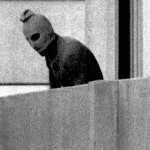In Judaism human beings are not tainted by an original sin. We are born, as Rabbi David Wolpe puts it, with “an original split.” We arrive with dual tendencies. Capable of profound acts of goodness, we can also choose horrific acts of evil.
The purpose of religion is to harness the good. It is to guide us toward a more sacred form of living. It is to cultivate what the Jewish sages called the yetzer hatov, the good inclination.
But sometimes we lose. Sometimes the cruelest and basest parts of the human heart inflict horror on the world. When this happens, we can rarely offer any sensible explanation. Pain pierces our platitudes.
Grief is the Price of Knowledge
Perhaps the most we can say is that grief is the price of knowledge. To be human is to know loss, tragedy and wickedness.
Recognizing this truth does not make it easier to endure. We often fall back on possible connections. In the case of the murders in Colorado, we talk about the fact that the alleged suspect was a loner. We talk about the influence of celebrity culture. We talk about our country’s lack of serious gun control laws.
All of these observations may be true. Yet, they do not explain. They do not comfort. They do not bring hope.
Let Your Sorrows Become Windows

How, then, shall we respond? What do we do? Alexander Schindler, one of the great rabbis of the twentieth century, wrote that our lives are full of “unexpected blows,” and “we must gather our heartaches” so our “sorrows become windows.” In other words, let our life experiences become sources of empathy and caring. Let us grow in our sensitivity and love.
We cannot cure the pain of those who were injured or lost loved ones in Colorado. Yet, we can show our support with calls or letters or assistance. I have been particularly moved by the news stories about survivors of the Columbine gun massacre and the shootings at Virginia Tech University who have helped one another learn to survive and cope.
Do Not Delay Joy
Three days ago Roger Ebert wrote a profound essay in the New York Times. In it he referenced a blog post by Jessica Ghawi, a survivor of a mall shooting last month in Toronto. Minutes before the shooter entered, she had been sitting at the table where he fired from.
She wrote, “I was shown how fragile life was. I saw the terror on bystanders’ faces. I saw the victims of a senseless crime. I saw lives change. I was reminded that we don’t know when or where our time on Earth will end. When or where we will breathe our last breath.”
This same woman was murdered in the theater in Aurora, Colorado. As we grieve, let us cherish her memory and wisdom.


